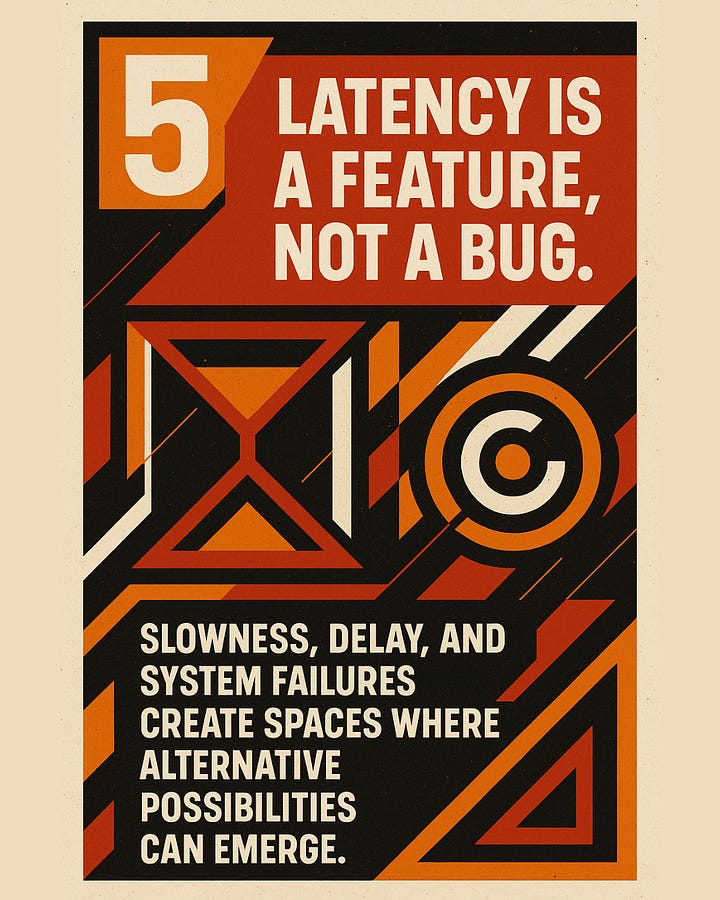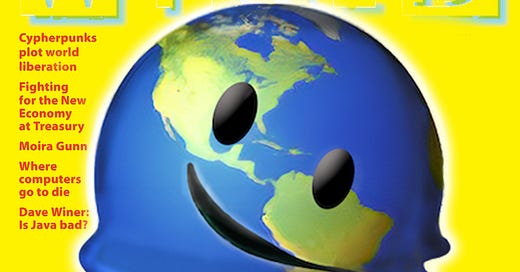Sitting in bath water slightly too hot for comfort, with epsom salts, a floral stew, thumb-pecking at the skeuomorphic typewriter painted on the slab of gorilla glass I don’t worry about slipping out of my grasp anymore because of IPXX water resistance…
Thinking about the Costco Gas station pump fuel I dispensed earlier into our hatchback Honda halfway-paid down in financing, feeling connected to the gas fields, shipping canals, the extension of imperial logistics across the planet, to keep up the illusion of automobile as commodity, the totem of my fetish, just like this phone in my hand that (as The Stack and Atlas of AI tell us) are full of little pieces of Africa that were all carrying around–––
And now I’m contemplating "copying" and "pasting" this recording of my sense-making from one interface to another, so that I can pretend to have a conversation about it with a machinic-hyperobject made of fossilized language deposits and powered by dominion over energy markets and regulatory captors (and the East Nigerian Reenforcement Company)
I’m trying to imagine strategies for growing with the overproduction of meaning and culture, rather than drowning in it.
(Ooh, that could be a good opening line to continue on lol)
Haraway says we’re not post-human, we’re compost human. My personal inclination is toward the cyber, the virtual, the ephemeral, the disembodied consciousness piloting this mortal suit of armor robotically- so it takes real effort for me to ground myself in material analysis, or in carbon-based morphological communications strategies. This will require reaching out: like so many rhizomaric tendrils:: intertwining dendritic follicles::: tentacular woven protocological loomings with otherminds.
Who makes the cut, who counts, who is computable?
I look to friends for inspiration about the secret lives of plants and chlorophyll. Look at what we have to do to mimic even a fraction of their tunneling! How will we rewild our biosphere and refuture our noosphere? Similar strategies for different abstraction layers…
Some Theses




Earlier I collaborated on some theses for charting resistance to the extractive logic of tech platforms and the antagonistic relationships we as user subjects are interpellated into through their interfaces. Some nice thoughts that came out of that, like:
Community cannot be platformed: Genuine social relations require infrastructure that serves care work, not data extraction.
And:
Resistance requires desertion: You cannot reform the vectors from within - alternative infrastructure must be built elsewhere.
There were some other good ideas in there too. I encourage you to hyperlink away to there if you are at all moved by those thoughts. But I’m also questioning my own participation in propagating a kind of pessimism that doesn’t feel as ripe for collaboration as I would like. I was drawing heavily on the work of McKenzie Wark, having recently just read Capital Is Dead: Is This Something Worse?, and also had the pleasure of attending a series at UC Irvine where she was guest lecturing on adjacent material, which is still sticking with me, on how what we think of as writing has become captured into these textual interfacial regimes dominated by an ownership class who controls the vectors of information. I find this analysis compelling, and useful even, but the use of imagining if something worse has replaced capitalism, I feel, as a gesture, is primarily made more productive by suggesting that we can (and indeed should) imagine alternative possibilities for what could come next. And perhaps not something that has to be worse.
The Vectoralist Class is what Wark calls the new extractive class that subsumes the Capitalist. It was something of a happy corrospondence that I have been doing my own branded namespace splunking around the idea of the vector – imagining the vector spaces of high dimensional AI systems and semantic search databases and recommendation algorithms as contributing to a shift in how we produce and consume knowledge, putting us on a new epistemological terrain, perhaps even a new "Episteme" as Foucault might term it – and having followed that line of thinking I did do some reading into the Foucault book where he starts writing about epistemes as the underlying codes that structure knowledge-making in an era. This has given me, if anything, another way to appreciate how knowledge is contingent. Situated, in the Haraway terming again.
I was trying to locate how we might be moving into this Vector Episteme, from the one Foucault leaves off from, the Modern (following the Classical, and the Renaissance, each with their own distinct characteristic ways of knowing)– which itself already is anticipating the End of the Human as a site and subject of study– anticipating the post-human, something yet to come...
But I feel like much of the analysis that we have now about the social networks and surveillance capitalism, about the creator economy and creative class knowledge workers (what Wark calls “the hacker class”, those who remix intellectual property as their trade) is itself rooted in something already getting too stale, a lagging indicator, something ready to rot. There must have been an in-between after that Modern Episteme which reached some high water mark in the long sixties and the end of history into something else. Something more networked and computational.
So filling out a diagram:
[Renaissance -> Classical -> Modern -> ???? -> Vector]something goes here
I thought to myself, what could that have been? And it occurred to me to call it the Cyber Episteme: a time of databases and dial-up that WIRED and Long Boomed its way through what LastNPCAlex calls “the long 90s” all the way up to Web 2.0. The age of the keyword, fleshed out and dominated by the logic of search engine optimization. And it’s all starting to come apart at the seams.
So here’s another gesture before I let the water drain away. Part of what characterizes this time now is the too-muchness of sign-making, the cultural overproduction, more YouTube uploaded in a day than you could watch in a lifetime (I don’t know if this is true but it intuitively feels correct). But I don’t want to simply tilt at windmills and go mad in the lighthouse talking about this stuff–––––I’m looking for agency!
The move from Cyber to Vector that I had begun to contemplate suggested a companion project to this charting of the vector episteme, one that was also suggested by conversations I’ve watched happening in various group chats I orbit with science fiction and futurist leanings. Discourse on the timelines:
Why haven’t we articulated any successor aesthetics to cyberpunk?
We’ve been stuck in a distinctly retrogressive framework here, one that, besides Solarpunk, we seem to be incapable of imagining little alternatives to. So, from cyber to vector– why not a VectorPunk? What would that look like? And my happy meeting with the ideas of Wark gave me some punky Marx-coded theoretical resistance-strategy language to mix in there (see "10 VectorPunk Theses" on websim), but I’m still eager for something more generative, and outward/forward-feeling-reaching, to build with others through. This has started leading me to other thinkers in the futures spaces, who I’d happily point your attention to.
One is a major caretaker of the solarpunk meme complex, Jay Springett, who authors a copious amount of provocative works on a regular basis, and is certainly a model of tending to one’s hypertext garden. Again and again he tells us how solarpunk is a collaborative container for radical imagination. He champions the notion that we must "re-future" our collective imagination much as we’d rewild our natures.
Another figure I look to is Julian Bleecker, the creator of the term "Design Fiction", and through his work on Near Future Laboratory exemplifies the practice of creating prototype artifacts from fictive futures that give us portals into possible worlds we can seek to inhabit (or inhibit). But Bleecker cautions us not to get hung up on lazy dystopian Black Mirror episode tropes when we practice this exercise, he exhorts us to “Imagine Harder”– he also decidedly describes himself as “not anti-capitalist”, and has something to say about how Haraway’s call to Stay With The Trouble doesn’t mean staying fixated on only the worse possible outcomes. He might know something about that, since she advised his PHD work! But she of course is a socialist scientist in that grand analytical tradition, and it’s one that I am careful to not discard completely.
What I take from these ideas is that if there is to be a critical aesthetic practice in the high dimension information spaces we find ourselves in now, it should be one that can compose with the flows of information and not just be opposed to them. What is rotting of the cyber will make good food for what is yet to come, and what can grow in that fertile ground should be something that isn’t just a negating anti–
I think of the gesture of the alter-globalization movements that lead up to the WTO battle for Seattle in '99– something about that notion of Alter over Anti that appeals to me. And so, I will leave you with an invitation to meet me, as we seek out vectorpunk aesthetics and tactics, and hopefully we will find each other there・。.・゜✭・.・✫・゜・。.
SEE YOU IN THE ALTERFUTURE
-it’s ya boi





Apologies for the clickbaity subheading. its ya boi